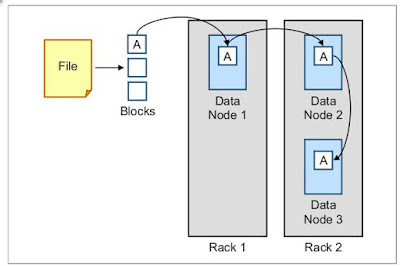Unlocking Big Data Potential with Kubernetes: A Game-Changer
Introduction:
Have you ever wondered how modern enterprises handle vast amounts of data efficiently? As organizations continue to collect and analyze unprecedented volumes of information, managing big data deployments has become increasingly complex. Enter Kubernetes—a powerful tool that is revolutionizing the way big data applications are deployed and managed. Kubernetes, originally developed by Google, offers scalability, flexibility, and automation, making it indispensable for today's data-driven world. This article explores the pivotal role of Kubernetes in big data deployments, highlighting its advantages and practical applications. By the end, you'll understand why embracing Kubernetes can be a game-changer for your big data strategy.
Body:
Section 1: Background and Context
Kubernetes, an open-source container orchestration platform, has garnered widespread adoption due to its ability to automate the deployment, scaling, and management of containerized applications. As the volume of data grows exponentially, traditional methods of handling big data fall short of the efficiency and scalability required. Kubernetes addresses these challenges by providing a robust framework that simplifies the complexities associated with big data deployments.
Section 2: Key Points
- Scalability: Kubernetes allows seamless scaling of big data applications, ensuring that resources are allocated efficiently to handle peak loads.
- Flexibility: With Kubernetes, deploying and managing diverse big data tools and frameworks become hassle-free, enabling organizations to customize their environments to suit specific needs.
- Automation: Kubernetes automates many aspects of big data management, reducing human intervention and minimizing errors, thus enhancing reliability and consistency.
- Resource Optimization: Kubernetes optimizes the utilization of computing resources, ensuring cost-effective operations and maximizing performance.
Section 3: Practical Tips, Steps, and Examples
- Choosing the Right Kubernetes Distribution: Evaluate different distributions (e.g., OpenShift, Rancher) to find the one that best meets your big data requirements.
- Implementing Kubernetes for Big Data Analytics: Case studies of organizations that successfully leveraged Kubernetes for big data analytics, highlighting the benefits and lessons learned.
- Optimizing Storage Solutions: Tips on integrating Kubernetes with modern storage solutions (e.g., Ceph, MinIO) to enhance data management capabilities.
- Security Best Practices: Steps to ensure the security of big data deployments on Kubernetes, including access control and encryption techniques.
Conclusion:
Kubernetes has transformed the landscape of big data deployments, offering unmatched scalability, flexibility, and automation. By adopting Kubernetes, organizations can efficiently manage their data workloads, optimize resource utilization, and unlock new possibilities in data analytics. As big data continues to grow in importance, Kubernetes will undoubtedly play a crucial role in shaping the future of data management. Embrace Kubernetes, and take your big data strategy to the next level.




Comments
Post a Comment